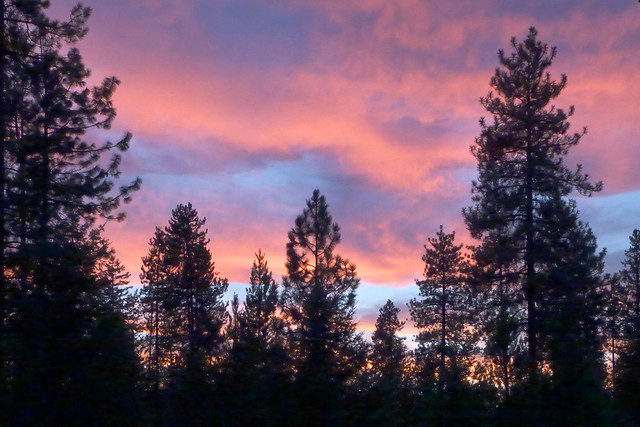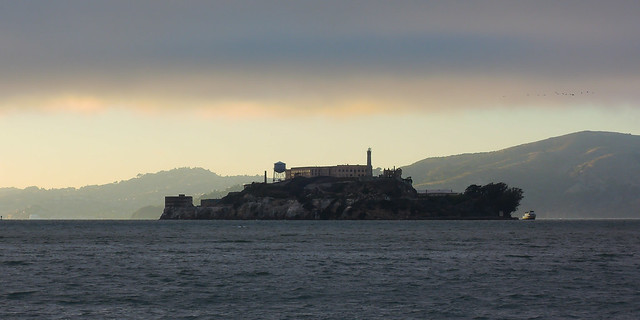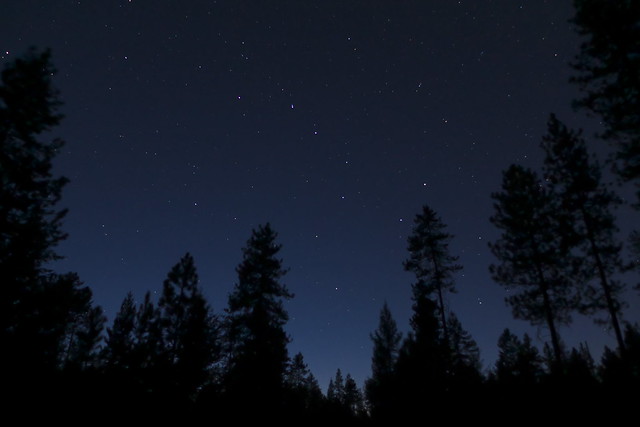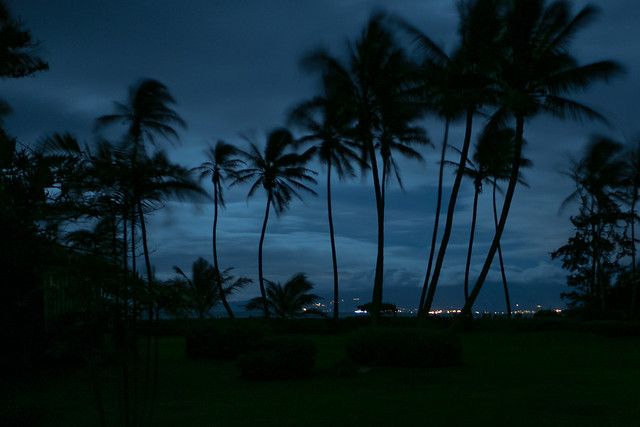“I discerned among the youths, a young man void of understanding, passing through the street near her corner; and he went the way to her house, in the twilight, in the evening, in the black and dark night.
—The Book of Proverbs
 |
| Late summer sunset [Flickr page] |
 |
| Alcatraz under a darkening sky [Flickr page] |
Let my eyes see the sun and be sated with light!It is reminiscent of the way King Hezekiah lamented his death in Isaiah 38. “From day even to night wilt thou make an end of me,” he complained to God, facing the wall from his bed. Hezekiah knew what awaited him, and his conversational relationship with the God of Israel did nothing to make him relish the prospect:
The darkness is hidden, how much light is there left?
When may the dead see the rays of the sun? [Tablet IX]
I said in the cutting off of my days, I shall go to the gates of the grave: I am deprived of the residue of my years. I said, I shall not see the LORD, even the LORD, in the land of the living: I shall behold man no more with the inhabitants of the world. [Isa. 38:10-11]God gave him an extra fifteen years, but night came eventually regardless. He went to the same place as Job and the billions of others whose brief candles have burned out, “to the land of darkness and the shadow of death; A land of darkness, as darkness itself; and of the shadow of death, without any order, and where the light is as darkness” (Job 10:21-22). As Gilgamesh had put it long earlier, “Only the gods dwell forever in sunlight” (Yale Tablet).
 |
| Big Dipper at dusk [Flickr page] |
I mused about these things last night while driving through dark woods and fields of my rural home in the Inland Northwest, where the lights are pinpricks dotting hillsides, glimmering faintly behind trees. Fall Equinox is now just past, and the nights are as long as the days, soon to be longer. The stove is already burning wood that I harvested from dead trees in the hot bright forest of just a few months ago.
But we have lights, a good generator for when the power fails (as it does at least a few times per year), plenty of backlit screens to engage our attention and soak our brains and retinas in brightness. The coyotes sometimes shriek and howl outside, but there are sturdy walls between us. As for evil, it now stalks well-lit boardrooms and halls of power much more than the forests.
Even the primal force that spawned religion and keeps people in its thrall, the fear of death, has largely abated in my imagination, and in those of many others. We have come full circle with the Preacher of Ecclesiastes: “The living know that they shall die: but the dead know not any thing, neither have they any more a reward; for the memory of them is forgotten.” Love, hatred, and envy all perish, says the Preacher. “Go thy way,” he advises his fellow mortals, “eat thy bread with joy, and drink thy wine with a merry heart” (Eccl. 9:5-7).
And so, even without any wine, the inky gloom feels peaceful, embracing, calm. Summer went on long enough; it is time for the light to abate, for the cool to creep back into the air.
 |
| The lights of West Maui from Molokai [Flickr page] |
Click on individual images to enlarge, or check out the entire set (and others following the “darkness” theme) on Flickr. All are Copyright © 2013 Edwin A. Suominen. You may freely use them for non-commercial purposes, with attribution, under the Creative Commons Attribution-NonCommercial 3.0 Unported License.